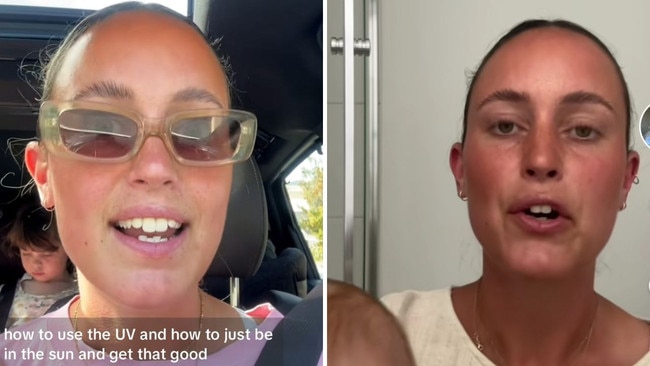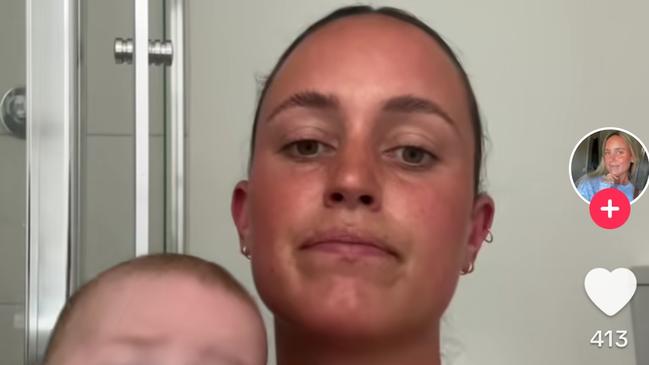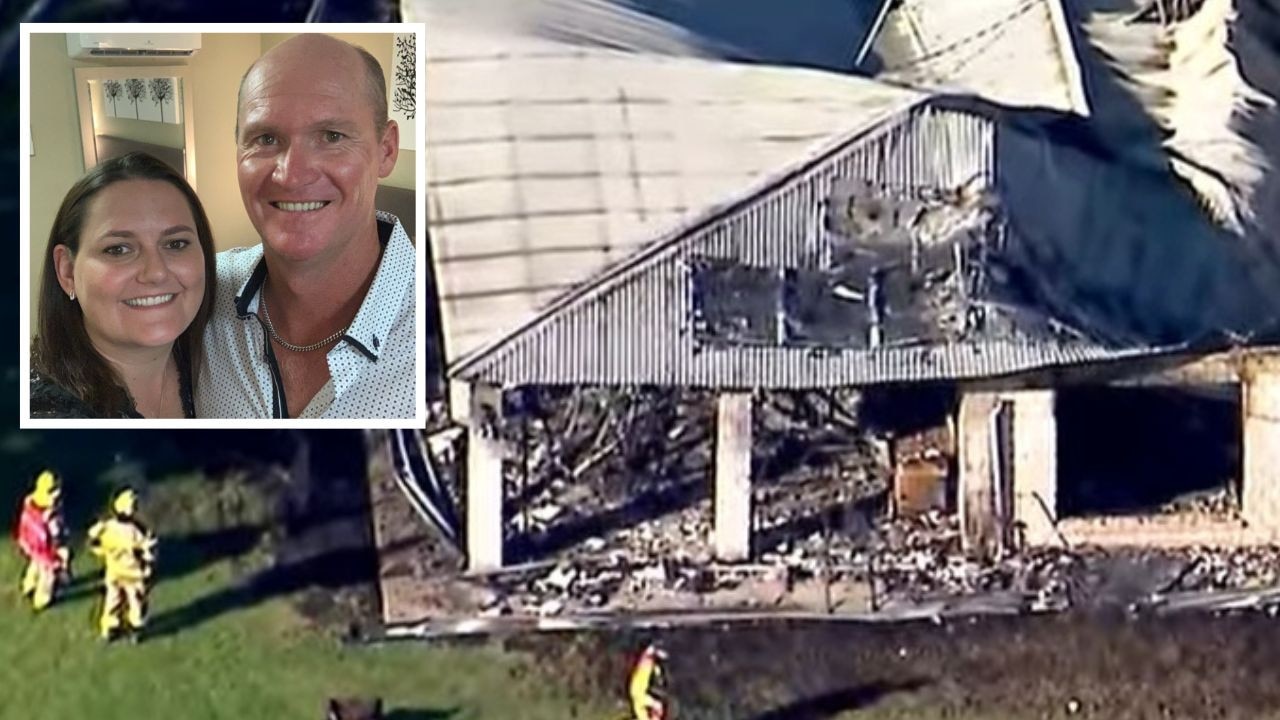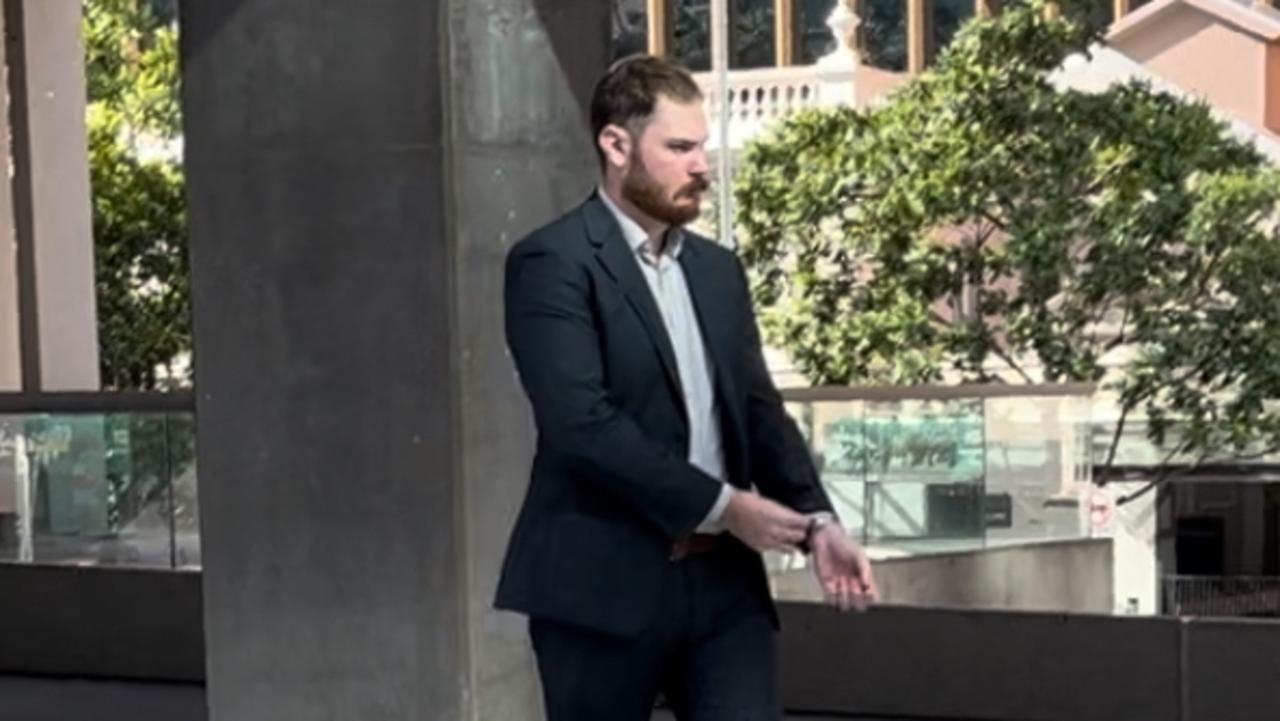Influencer Montana Watt ditches sunscreen for natural alternatives, TikTok reacts
Aussie influencers who say they are ditching sunscreen for “natural products” throughout the summer have been slammed as “infuriating and ignorant”.

QLD News
Don't miss out on the headlines from QLD News. Followed categories will be added to My News.
A rising number of TikTok influencers are ditching sunscreen in favour of more natural products, with experts now warning that sun safety is paramount going into summer.
Aussie TikTok influencer Montana Watt recently joined the chorus of influencers that are no longer using traditional sunscreen after uploading a video speaking about her “low-tox” journey and why she only uses zinc now.
“We’ve stopped using sunscreen. It’s going to be 30C today and I have put a little bit of zinc on my kids faces,” she said in the video.
“We have gone down the rabbit hole of sunscreen thanks to my husband who saw me putting on my natural coconut sunscreen and read the back of it. He said ‘did you know this, this and this’ is all linked to cancer?”
Stunned by her husband’s revelation, the influencer went for a “deep dive” to investigate the claims.
“I saw one of my friends on here talk about sunscreen and how they don’t use sunscreen,” she said.
“You can safely be in the sun and build up a resistance to it. How to be in the sun and get that good healthy vitamin D without putting a bunch of chemicals on your skin.”
In another video the influencer encouraged people to go outdoors early in the morning, or late in the afternoon.

“My kids always wear long sleeve bathers, no bikinis, no two pieces,” she said.
“They always have hats, especially when we are going down the beach. We aren’t a family that is down the beach between 10am and 3pm with a massive cabana. We try to get out really early or really late and keep an eye on the UV levels.”
In reaction to the trend, other Aussies are calling on influencers to do better in using their platforms to spread sun safety.
“I’m shocked to be honest. Do your research first, don’t trust what people say,” one mum said in response to the recent videos.
“With this Australian sun? That’s enough internet for one day,” another mum added.
A third commented that discussion around ditching sunscreen is “infuriating”.
“My friend died from melanoma at 30 years old. Their ignorance is an insult to those who have lost their lives,” she wrote.
Sharyn Chin Fat, head of prevention at Cancer Council Queensland, encourages all Aussies to apply some form of sun protection.
“At Cancer Council Queensland, we strongly believe people should use the sunscreen that
works best for them and their skin. Some Queenslanders may prefer to use zinc sunscreens
which act as a “barrier” that sit on top of the skin. Zinc sunscreens also offer excellent
protection, as long as they’re SPF50+ and water resistant,” she said.
“Queensland is the skin cancer capital of the world, so sun protection needs to be a priority for anyone living in Queensland, all year round. Every day in Queensland the UV index sits at three or above. UV radiation is an invisible danger because we can’t see or feel it; this means even in winter or overcast, rainy days, people need to be thinking about their skin if they’re heading outside.”
She continued to say using multiple forms of sun protection is the best way to prevent cancer.
“To protect their skin, we recommend Queenslanders use multiple forms of sun protection and
practice all ‘Five S’s’ in combination when they’re outdoors: Slip on sun protective clothing, slop on sunscreen, slap on a broadbrimmed hat, seek shade, and slide on sunglasses,” she said.
“Queenslanders should choose a sunscreen that is SPF50 or SPF50+, broad-spectrum and
water-resistant, and apply a generous amount at least 20 minutes before heading outdoors.
“Queenslanders should also try to stay in the shade wherever possible and stay out of the sun in the middle part of the day. When it comes to protecting your skin, it’s much safer to head out early in the morning, and late in the afternoon, when the UV is generally at its lowest.”
She recommended wearing clothing and swimwear with a rating of UPF50 or UPF50+ to offer the highest amount of protection.
“This means the material itself and the level of coverage it provides do a better job protecting you from UV rays. When choosing sunglasses, choose a close-fitting, “wraparound” style that meets the Australian Standard AS1067 on the label,” she said.
“Our research shows, about two in three Australians will be diagnosed with some form of skin
cancer before the age of 70, so it’s vitally important we’re protecting our skin.”




